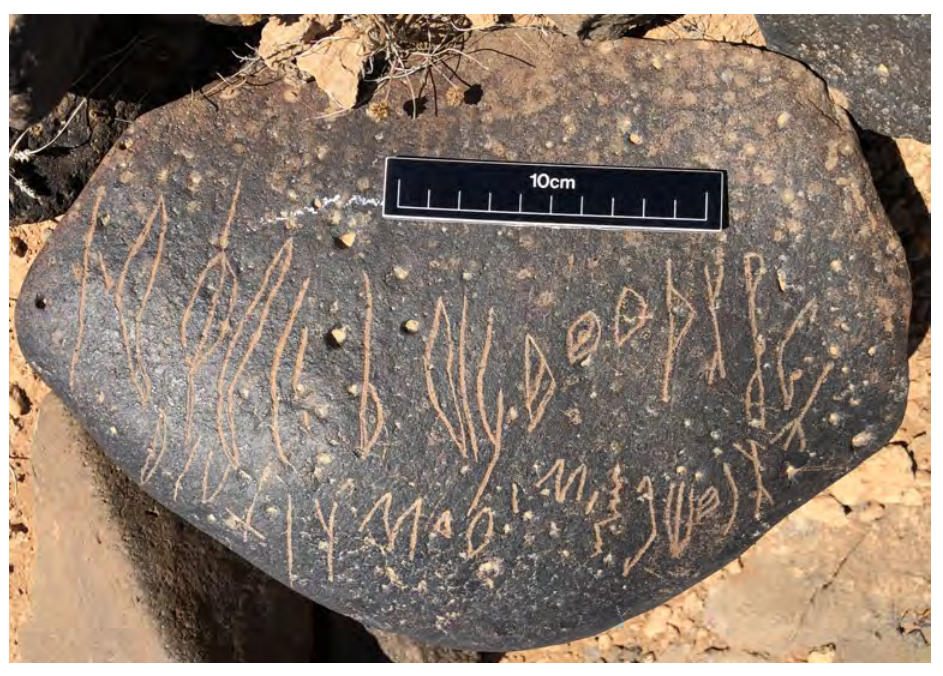The last time I did any serious work in Islamic studies was four years ago, in March-April 2019, when I was busy showing that, according to my hadith verification method, none of the pro-predestination hadiths were reliable. I was never able to finish that work.
I might possibly be “back” and I might be able to continue the kind of work I was busy with in 2017-19. But I cannot promise anything; only God knows what is in store for me.
I apologize to all the people I’ve failed to respond to. My condition worsened in 2019, and in 2020 due to Covid-19 I ended up being sick and fatigued for months at a time. Sometimes for months at time even reading a paragraph of text was more than I could do. In early 2021 I had a minor stroke during the fourth or fifth time that I had Covid-19, and I’m still recovering from that.
But I’ve still been able to do a lot of reading over the past four years in order to cure my lamentable ignorance about many things. A lot of my reading is in academic monographs and essay collections, so perhaps it’s not all entirely useless entertainment for myself. I’ve read 252 books since April 2019, if we count Quran re-readings too. Here are some of the books I’ve read in 2023 so far:
- Ian Hodder, Studies in Human-Thing Entanglement (2016)
- C. S. Lewis, The Discarded Image: An Introduction to Medieval and Renaissance Literature (1964)
- Owen Barfield, History in English Words (1967 Eerdmans [1953])
- Neil Rhodes, Shakespeare and the Origins of English (2004)
- Ahmad al-Jallad, The Religion and Rituals of the Nomads of Pre-Islamic Arabia: A Reconstruction Based on the Safaitic Inscriptions (2022)
- Peter Magee, The Archaeology of Prehistoric Arabia: Adaptation and Social Formation from the Neolithic to the Iron Age (2014)
- Robert G. Hoyland, Arabia and the Arabs: From the Bronze Age to the Coming of Islam (2001)
- Norman Yoffee, Myths of the Archaic State: Evolution of the Earliest Cities, States and Civilizations (2004)
- Kay Redfield Jamison, Touched With Fire: Manic-Depressive Illness and the Artistic Temperament (1993)
- Leslie A. Marchand, Byron: A Portrait (1976 [1971])
- Second reading of C. S. Lewis’s Space Trilogy: Out of the Silent Planet (1938), Perelandra (1943), and That Hideous Strength (1945).
- C. S. Lewis, Till We Have Faces (1956) (second reading)
- C. S. Lewis, The Great Divorce (1945) (second reading)
- C. S. Lewis, The Pilgrim’s Regress (1933) (second reading)
- James Turner, Philology: The Forgotten Origins of the Modern Humanities (2014)
- John W. Chaffee, The Thorny Gates of Learning in Sung China: A Social History of Examinations (1985?)
- Johannes Pedersen, The Arabic Book (1984 [1946]) tr. Geoffrey French ed. Robert Hillenbrand
- Jim B. Tucker, Return to Life: Extraordinary Cases of Children Who Remember Past Lives (2013)
- Ian Stevenson, European Cases of the Reincarnation Type (2003)
- Ian Stevenson, Children Who Remember Previous Lives: A Question of Reincarnation (Revised Edition) (2001/1987)
- Ian Stevenson, Where Reincarnation and Biology Intersect (1997)
- James G. Matlock, Signs of Reincarnation: Exploring Beliefs, Cases, and Theory (2019)
- Bruce Greyson, After: A Doctor Explores What Near-Death Experiences Reveal About Life and Beyond (2021)
- Titus Rivas, Anny Dirven, and Rudolf H. Smit, The Self Does Not Die: Verified Paranormal Phenomena from Near-Death Experiences (2016)
- Jeffrey Long and Paul Perry, God and the Afterlife: The Groundbreaking New Evidence for God and Near-Death Experience (2016)
- Kenneth Ring, Lessons from the Light: What We Can Learn from the Near-Death Experience (1998, 2006)
- Raymond A. Moody, Life After Life (25th Anniversary Edition) (1975, 2001)
Among these the most eye-opening one was al-Jallad’s The Religion and Rituals of the Nomads of Pre-Islamic Arabia. There’s something strange and wonderful about seeing inscriptions by pre-Islamic Arabians writing things in a very strange alphabet that, once deciphered, is very recognizably “Arabic”.

l mqm bn ymlk w wgd ʾṯr ḏʾb w ḥrśn f ngʿ f h lt slm
‘By Mqm son of Ymlk and he found the traces of Ḏʾb and Ḥrśn and grieved in pain
so, O Allāt, may he be secure.’
The transliteration above does not add vowels because it is not known how the people who made these inscriptions actually pronounced these words. Reconstructing the pronunciation from Arabic would be premature and unscholarly. But regardless of the pronunciation, turning these letters into Arabic makes most of the words make some kind of sense in Arabic:
wgd ʾṯr = وَجَدَ أَثَرَ = "he found the traces of"
f h lt slm = فها الّات سَلِّم = O Allāt [the name of the pagan goddess] make safe / provide safety
C. S. Lewis

In August 2019 I read C. S. Lewis’s Allegory of Love (an academic book on medieval poetry), and I soon sensed that he was truly “a man after my own heart”. I went on to read over 30 other books by him, including his 4000-page collected letters. When I discover one of those extremely rare thinkers who show promise that they can teach me something new, I tend to read all of their books that I can get my hands on. There’s still an important book of his I haven’t read, the 600+ page Poetry and Prose in the Sixteenth Century.
Tolstoy
In early 2021 I read Tolstoy’s War and Peace and saw that he was another one of the greats worth reading. Since then I have read War and Peace two more times. I have also read some of his other major works and his biography. I noticed during my first reading of War and Peace that despite his wonderful insights, there was something “off” about him, a kind of moral laxity. He was no C. S. Lewis or Dostoevsky, men who truly spent their days like candles burning for the greater glory of God.
Dostoevsky
Between 2021 and 2022 I read all of Dostoevsky’s novels (starting with the definitive 900-page biography by Joseph Frank). I used to say that Dostoevsky fills in the missing pieces in C. S. Lewis’s worldview, writings, thinking, or what have you, and maybe that is true.
Dostoevsky’s last novel The Brothers Karamazov is considered his greatest by many, or even one of the greatest novels of all time, but I had to force myself to finish it because, having read all his previous novels, there wasn’t anything new or interesting left for me to learn from him. It felt like a reworked summary of his other works (when it comes to the ideas and feelings pushed forward, not the plot, which is of little interest to me).
And I agree with Joseph Frank that Dostoevsky’s The Adolescent was a really bad, or at least unentertaining, rambling and insight-poor novel. But poor Dostoevsky needed the money.
I will end this article here. I hope to have much more to say about all the interesting things I’ve read.
Man i missed you. Welcome back.
May Allah swt grant you shifa in your health, I know he loves you dearly! Will be adding thesw books to my TBR
Alhamdulilah you feel better. I’ve wanted to ask you many questions if you don’t mind. 🙂
Welcome back brother
Welcome back, to one of the most intellectual Muslims of the modern age. Through your work, God guided me back to rational, moderate and pluralistic Islam that always made sense to me.
Your works such as hadith methodology and Islamic views are truly grounded in authenticity, evidence and rationality, which is something my own intellect has always searched for.
May Allah grant you shifa in your health.
Keep up the good work!
may you get well soon 🙂
Salam Alaikum, Ikram! Masha’Allah, you have truly been blessed to lead the life of a scholar.
I wanted to let you know that I’ve made so much progress with my own capacities, thanks to the fact that I’m working with a doctor of functional medicine in my own city. If only I had done this years earlier, rather than just trying to figure it out on my own …
One of the things that I’ve been able to do now is to set myself a reading schedule of going through one book per week … it seems like you might have been doing something similar! The idea is that a deadline is actually a good thing, because it motivates us. So what I do now is divide the total number of pages in a given book by seven, and then allocate which chapters I’ll be reading each day, Monday through Sunday, and mark that on my calendar.
(By the way: My doctor told me to take a high-quality multivitamin every day, potentially for the rest of my life; methylated B-vitamins; 10,000 IU of vitamin D, since I was horribly deficient; fish oil; and then some other fundamental health principles. I’m also fasting Mondays and Thursdays).
Take care, man!
Bem vindo de volta
Que você seja muito feliz